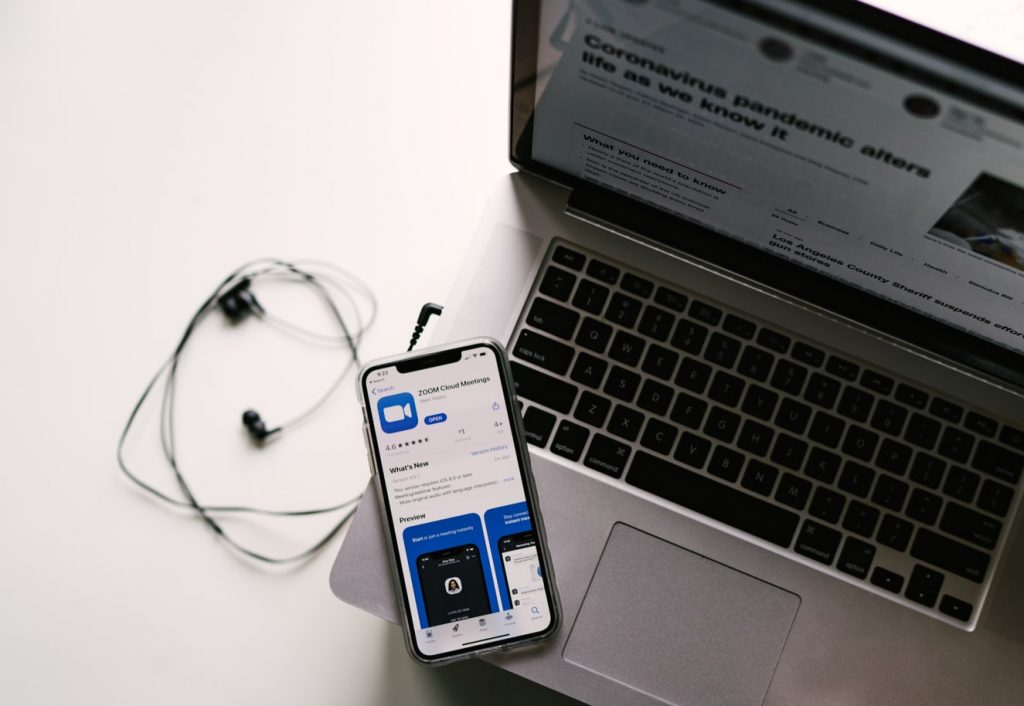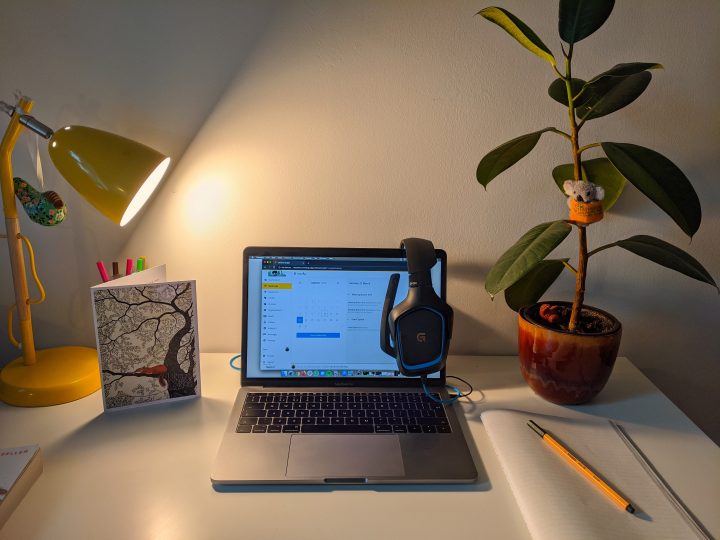The global spread of COVID-19 is keeping people at home. Much of the world is on lockdown, and even in places that aren’t, people are encouraged to stay at home, and when possible, to work remotely.
At Immediab, we have implemented a work-from-home policy for the safety of our team members but also to play our part in flattening the curve and curbing the spread of the virus.
Even if you’ve done it before, working from home in the coronavirus context might feel like a whole new world: It’s sudden, you’re not sure how long it’ll last and the isolation can quickly become a downer if you are used to socializing at work.
To help, here are some top tips for staying productive and mentally healthy while working from home.
1. Create a routine
Deciding you’ll sit down at your desk and start work at a certain time is one thing. Creating a routine that guides you into the chair is another 🧐. When you work in an office, the daily routine of getting ready and commuting helps your brain get ready for the day. When you’re working remotely, it is important to have “start the day” triggers that get your head ready for work in a similar way.
What in your morning routine indicates you’re about to start work? it might be making a cup of coffee, exercising preferably at home, getting dressed or reading the news.
2. Set a schedule
Usually our time and the structure of our day are influenced by other people. So, it’s normal that you experience your day as lacking the normal structures that you usually have. Time spent (working) alone is better if it’s structured.
A simple to-do list can do wonders for keeping you both organized, motivated, and productive as you work from home. As you create your list, think about big, long-term goals, but also small goals. Checking off those smaller goals lets you know you’re making progress, which helps you stay motivated throughout your day. And work feels much more doable when it’s not all one giant task 😟.
There’s no doubt remote work rhymes with flexibility, and sometimes you need to extend your day or start early to accommodate someone else’s schedule. That doesn’t mean your entire day has to be work only. It’s actually important to take regular breaks to refresh yourself mentally, physically, and emotionally. When creating your schedule, don’t forget to include non-work activities and find time to take care of those as well. Having clear guidelines for when to work and when to call it a day helps you maintain work-life balance.

3. Keep a dedicated workspace
When we go to the lab/office, the separation between work and home is physical, and you want to try to recreate that as much as possible with a designated physical workspace at home. That said, your workspace doesn’t have to be its own room, it can be a corner. The most important is that it feels as separate from the rest of your home as possible.
Entering your workspace will help you turn “on” at the beginning of the day and get down to work. On the flipside, leaving your workspace will also help you turn “off” at the end of the day and fully disengage. That’s why it’s also important not to spread yourself across your home even if it might seem great to be able to move from desk to couch to bed 🙃.
Now if you’re working at a table you need to use outside of work or a room you spend a lot of time in, pack up your work each evening to make the end of your day decisive. The key here is to do whatever you need to do to “leave” your workspace.
4. Communicate
Working from home might seem like a solo experience, but it usually still involves interacting with others, whether it’s meeting with your team, getting assignments, making decisions, or giving and receiving feedback.
Working remotely actually requires you to overcommunicate— with your manager, direct reports and anyone you usually work collaboratively with throughout the day. Tell everyone who needs to know about your schedule and availability often. When you finish a project or important task, say so. Communicating doesn’t mean you have to write a five-paragraph essay to explain your every move, but it does mean repeating yourself.
While email can be effective for making an official decision or passing on information, people’s inboxes can get clogged up quickly. If you need to ask a quick question or send a fast update to your team, go beyond email and use other digital tools that can better replicate the in-person office experience (Google hangouts, Slack). This approach will not only cut down on miscommunication, it will also break up some of the social isolation that can come from working from home.

5. Socialize with colleagues
With the implemented stay-at-home policies, you’re cutting off a lot of the casual social interactions you’re used to having throughout the day that help you feel less lonely and break up the monotony of work.
To overcome that, talk with your coworkers throughout the day through Slack, calls, text, Zoom. Don’t just check in with them about work projects —really check in. Lots of us are feeling anxious and uncertain right now, and suddenly being isolated at home can amplify these feelings. So don’t hesitate to reach out to a coworker just to ask how they’re doing. These little interactions go a long way.
Remember, this doesn’t just apply to people you work with. Facetime your friends, your parents. With everything going on, it’s more important than ever that we reach out, connect, and take care of one another 🙏🏻.
6. Don't be too hard on yourself
Successful remote working requires discipline. That is a fact. However, we all let our attention drift sometimes. If you find yourself working one minute and creating Pinterest boards for your dream kitchen the next (we’ve all been there 🤗), don’t reprimand yourself too harshly. Just try your best not to get sucked in and get back to work 🤓.
Working remotely is a double-edge sword — sure, you get to stay home, but it can be harder, particularly in the current circumstances, to focus on actually working. So we hope those tips are helpful.
How are you coping with the work-from-home policy? We’d love to hear about your top tips for staying productive and mentally healthy!
Stay safe ❤️





